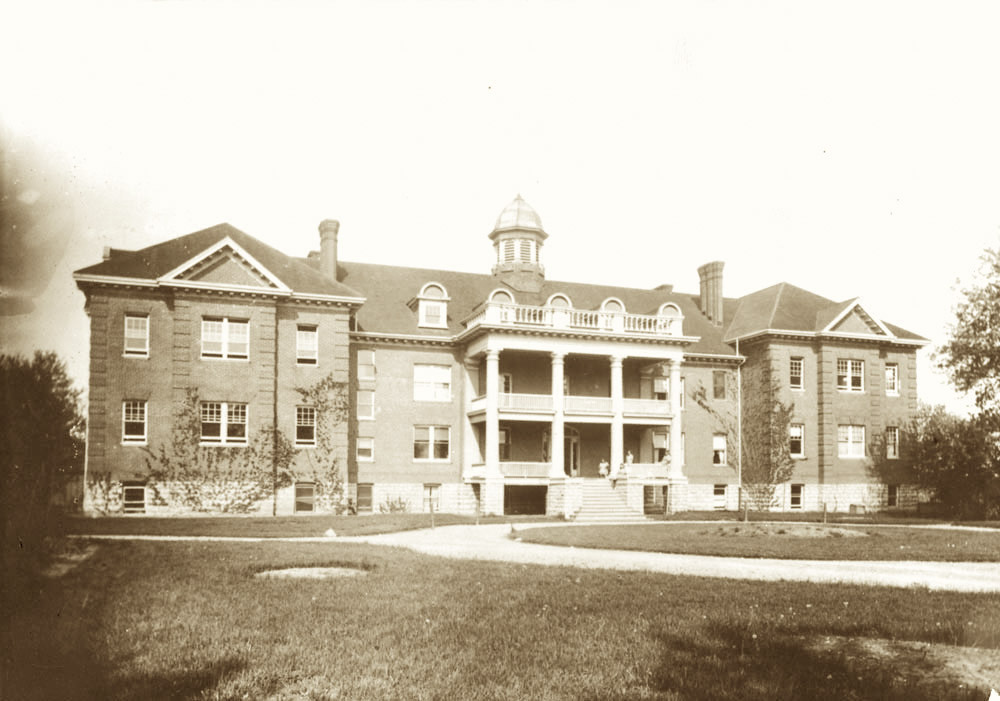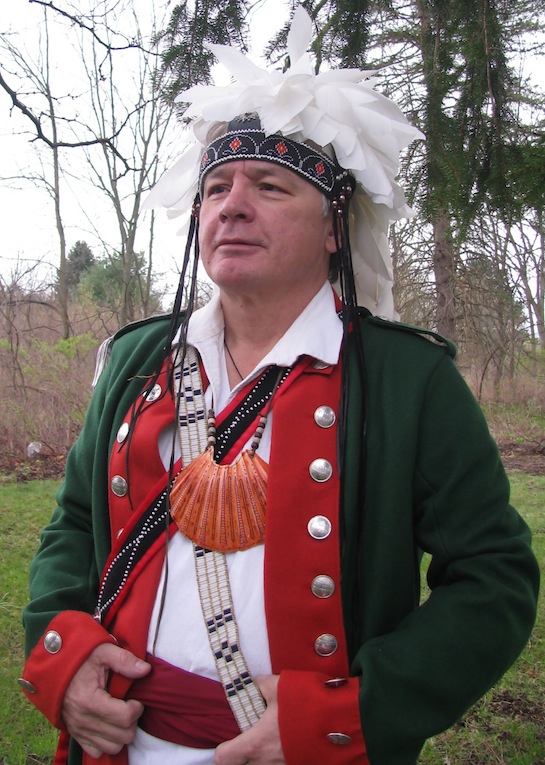Indianz.Com > News > Doug George-Kanentiio: Mohawk people demand accountability for residential school abuses
The Mohawk People Have Spoken
Thursday, July 15, 2021
On July 1, the Akwesasne community demonstrated in the most powerful way its desire to address the terrible effects residential schools have had on the people and to support those who survived the trauma of being ripped from their homes and placed in institutions designed to beat the Native out of them.
Equally compelling to the 1,000 people who marched was the finding of mass graves of Native children, buried on the grounds of the schools. Over a thousand have been located to date with many more to be found. Canada had at one time 139 residential schools across the nation, many operated under contract by the federal government with the Anglican and Roman Catholic churches. The oldest of these was the Mohawk Institute located in the city of Brantford on land owned by the Six Nations-Ohsweken people.
It was rightfully called the “mush hole” for the watery porridge given to the hungry children each morning. Since its opening in 1831 it had become notorious for the manner in which the staff exploited its inmates, some as young as 4. It was closed in 1971 after an investigation into the September 3, 1968 death of Joey Commanda, a 13 year old Algonquin runaway who was struck and killed by a commuter train in the west end of Toronto, 60 miles into his 250 mile joinery home.
Commanda was a friend of the Akwesasne Mohawks confined to the Institute; I met him when I was 12 after I was sent to that school with the compliance of the St Regis Band Council (now the Mohawk Council of Akwesasne). Joey and his brother Rocky were our pals who took part in the many acts of defiance which resulted in the “St. Regis Boys” being expelled in June of 1968.
When Joey and Rocky found out we would not return they did as we had-they ran. Rocky was apprehended 30 miles away in Hamilton, Ontario but Joey avoided arrest and continued to follow the train tracks until he was hit at 7:15 pm just below what is now the St. Joseph’s Health Centre along Lakeshore Boulevard.
Joey’s family demanded an investigation which led to the exposure of the brutal conditions at the Institute and its final closure.
In that way Joey represented all of those who endured the Institute and those yet to be found, interred in unmarked graves. Joey had heard, as did we all, about children taken at night and disappeared or the runaways never located.

1. A formal apology from the St. Regis Tribal Council and the Mohawk Council of Akwesasne for their part in the taking of the children and the failure to protect them from the abuses each child suffered while confined to those schools
2. Compensation for the abuses and sufferings consistent with traditional Mohawk customs.
3. Using our existing research facilities and staff to record each individual and to collect as much physical data as possible for a permanent audio, visual and printed archives
4. Actively supporting the survivors in locating and returning home the remains of the missing children at the Mohawk Institute and elsewhere
5. Setting aside land within the Akwesasne territory as a spiritual and healing location
6. A communal gathering to recognize each victim and to hold a condolence ceremony to wipe away the tears of shame and anger
7. A commitment to work with the provincial and federal government to create a National Residential School Museum on Akwesasne territory
8. Nothing for us without us-we must be consulted before any action, proposal, expenditure is made on our behalf
To date, none of the three Mohawk councils have responded to these proposals. No contact has been made by any tribal and band council officials with the survivors which undermines and ignores the will of the people. This is very disturbing given the public statements made by the MCA and Tribe to address this scandal yet their failure to accept responsibility for their role in the forcible taking of Mohawk boys and girls.
In the most visible way the Mohawk people have spoken and it is the duty of every council member to act accordingly.
Note: Thumbnail photo of Woodland Cultural Centre, located on the grounds of the former Mohawk Institute Residential School in Ontario, Canada, by Sean Marshall

Doug George-Kanentiio, Akwesasne Mohawk, is the
vice-president of the Hiawatha Institute for Indigenous Knowledge. He has served
as a Trustee for the National Museum of the American Indian, is a former land
claims negotiator for the Mohawk Nation and is the author of numerous books and
articles about the Mohawk people. He may be reached via e-mail at:
Kanentiio@aol.com or by calling 315-415-7288.
Note: Content © Doug George-Kanentiio
Related Stories
Doug George-Kanentiio: The horrors of the Mohawk residential school (June 14, 2021)
Search
Filed Under
Tags
More Headlines
Chuck Hoskin: Cherokee Nation helps heal our communities
Native America Calling: Native skin cancer study prompts new concerns about risk
South Dakota Searchlight: Trump terminations hit Indian Arts and Crafts Board
Native America Calling: Regional improvement in suicide statistics is hopeful sign
List of Indian Country leases marked for termination by DOGE
‘Let’s get ’em all done’: Senate committee moves quickly on Indian Country legislation
AUDIO: Senate Committee on Indian Affairs Business Meeting to consider several bills
VIDEO: Senate Committee on Indian Affairs Business Meeting to consider several bills
Native America Calling: The ongoing push for MMIP action and awareness
‘Blindsided’: Indian Country takes another hit in government efficiency push
Native America Calling: A new wave of resistance against Trans Native relatives
Urban Indian health leaders attend President Trump’s first address to Congress
‘Mr. Secretary, Why are you silent?’: Interior Department cuts impact Indian Country
Cronkite News: Two Spirit Powwow brings community together for celebration
Native America Calling: Native shows and Native content to watch
More Headlines
Native America Calling: Native skin cancer study prompts new concerns about risk
South Dakota Searchlight: Trump terminations hit Indian Arts and Crafts Board
Native America Calling: Regional improvement in suicide statistics is hopeful sign
List of Indian Country leases marked for termination by DOGE
‘Let’s get ’em all done’: Senate committee moves quickly on Indian Country legislation
AUDIO: Senate Committee on Indian Affairs Business Meeting to consider several bills
VIDEO: Senate Committee on Indian Affairs Business Meeting to consider several bills
Native America Calling: The ongoing push for MMIP action and awareness
‘Blindsided’: Indian Country takes another hit in government efficiency push
Native America Calling: A new wave of resistance against Trans Native relatives
Urban Indian health leaders attend President Trump’s first address to Congress
‘Mr. Secretary, Why are you silent?’: Interior Department cuts impact Indian Country
Cronkite News: Two Spirit Powwow brings community together for celebration
Native America Calling: Native shows and Native content to watch
More Headlines